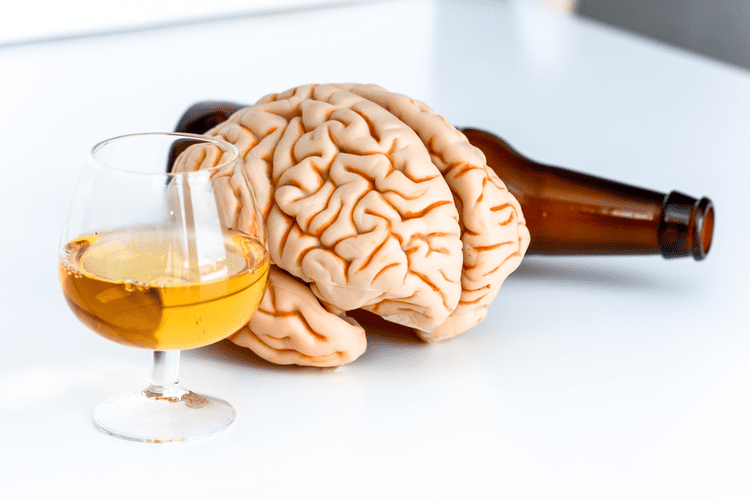If you have a pattern of suddenly feeling very sick after consuming alcohol, you may have developed sudden onset alcohol intolerance. Your body may also start to reject alcohol later in life because as you age and your body changes, the way you respond to alcohol can also change. People with mold or yeast allergies may have an allergic reaction to the brewer’s yeast used to make fermented beverages like beer, wine, and hard cider. A reaction to high-histamine foods could be a sign of histamine intolerance. Your body has two enzymes that are supposed to break down histamine, but sometimes they don’t work as well as they should. To make sure you’re staying safe, talk with a doctor to find out the best way to avoid these symptoms.
Risk factors
- If someone requires support with their alcohol use, they can speak with a doctor to discuss the recommended guidelines for alcohol intake.
- One size does not fit all and a treatment approach that may work for one person may not work for another.
- The symptoms are caused because the body’s immune system becomes overactive and attacks something found in the alcohol.
- White wine tends to contain higher levels of sulfites than red wine and beer.
- If you have a reaction to an alcoholic drink, you may have one of two things—a true allergy or an alcohol intolerance.
If a person suspects they have alcohol intolerance, they should speak to a doctor. They may diagnose alcohol intolerance based on the person’s medical history and symptoms. Some brands advertise http://opeople.ru/news/8459/ alcohol intolerance tests that measure IgG reactions rather than analyzing a person’s genetics. This type of test will not show someone if they have a genetic alcohol intolerance.

Spotting the signs of an adverse reaction to alcohol
While nobody feels great after having one too many drinks, somebody with an alcohol intolerance may feel sick right away. “The first sign of alcohol intolerance is usually the general feeling of malaise and discomfort or not feeling well from as little as one drink,” Mansour says. This symptom alone can make drinking unappealing, and you may want to talk to your doctor if it keeps happening.

Alcohol allergy
They don’t have one of the active enzymes needed to process alcohol — alcohol dehydrogenase (ADH) or aldehyde dehydrogenase (ALDH). When it comes to drinking, there’s a big difference between feeling tipsy and having symptoms of alcohol intolerance. The former is when you get a little loosey-goosey at the bar; the latter is more like you feel sick after sipping on a glass of wine while relaxing at home. An allergy or intolerance to alcohol is not always responsible for symptoms occurring after drinking alcohol.
And the condition does not increase your blood alcohol level, either. Often, people with alcohol intolerance drink less, because the symptoms they experience are so unpleasant. http://women.dp.ua/page/617/ You may notice that even after drinking a small amount of alcohol, you don’t feel great. These might be signs of alcohol intolerance, an inherited disorder.
Corn Allergies and Intolerances
Intolerances, on the other hand, are not caused by an immune response but usually occur when the body has difficulty digesting certain substances. For instance, lactose intolerance occurs when the body lacks the enzyme lactase, which is necessary to break down lactose, a sugar found in milk and dairy products. Other factors like stress, physical activity, and consumption of alcohol or certain medications can exacerbate https://junna-moric.ru/bolezni-i-travmy/dieta-pri-oki-u-detej.html intolerance symptoms. It’s very difficult for consumers to know whether an alcoholic drink contains allergens or ingredients they’re intolerant to. That’s because in the UK, alcoholic drinks manufacturers don’t have to put an ingredients list or nutrition information on the label. So, Dr Sim urges anyone who knows they’re allergic to certain foods, particularly grains, to be aware they could be in drinks, too.
- The doctor may refer the person to an allergy specialist for further testing and treatment.
- Alcoholics Anonymous defines this as “a physical compulsion, coupled with a mental obsession to consume alcohol,”in which cravings for alcohol are always catered to, even at times when they should not be.
- Food allergies typically trigger an immune response leading to symptoms like hives, swelling, difficulty breathing, stomach pain, and in severe cases, anaphylaxis.
- The main cause of alcohol intolerance is a problem with how the body breaks down alcohol.
- The best way to live with this condition is to avoid alcohol as much as possible.
- The four main types of intolerance are lactose intolerance, gluten intolerance or non-celiac gluten sensitivity, caffeine intolerance, and histamine intolerance.
2. Brain (CNS) Histamine
- If you have this variant, it causes your body to produce less active ALDH2.
- “Alcohol intolerance is a way of your body informing you that it is rejecting what is being put in it to process,” Sheila Shilati, PsyD, COO of rehab facility Seasons, tells Bustle.
- The main risk factor for having a problem with ALDH2 is being of East Asian descent, especially Chinese, Korean or Japanese.
- The first authors to draw attention to the high prevalence of autoimmune and atopic diseases in patients with ADHD were Geschwind (1985) [48,49] and Marshall (1989) [6].
- People who experience low tolerance can continue to consume alcohol as long as they know their limits and do not exceed the recommended units per week – around 14 units per week for men and women.
- Alcohol use disorder can include periods of being drunk (alcohol intoxication) and symptoms of withdrawal.
The DSM is a guide that describes and classifies mental disorders, published and updated regularly by the American Psychiatric Association and used as a tool by medical professionals. In the DSM-5, alcohol use disorder is further classified into categories of mild, moderate, and severe. To learn more about alcohol treatment options and search for quality care near you, please visit the NIAAA Alcohol Treatment Navigator. Having support and seeking professional treatment increases the chances for recovery from AUD.
Elsewhere on BBC Food
- While both are reactions to alcohol and can sometimes cause similar symptoms, they are different issues.
- It helps to read the product label, although many ingredients used in the fermentation or distillation process may not be included.
- Symptoms of an alcohol allergy include rashes, itchiness, swelling and severe stomach cramps.
- Next to flushing, a stuffy nose is the most commonly reported symptom of alcohol intolerance.
A 2010 German questionnaire surveyed 4,000 people and found that self-reported wine intolerance specifically was present in 5.2% of men and 8.9% of women. However, only around 20% of those surveyed completed and returned the questionnaire. People who experience low tolerance can continue to consume alcohol as long as they know their limits and do not exceed the recommended units per week – around 14 units per week for men and women. Those with alcohol intolerance should try to limit or abstain from alcohol consumption entirely. This is caused by inherited (genetic) traits most often found in Asians.







